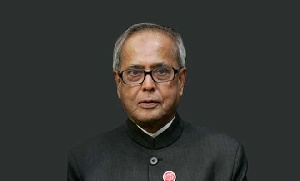The President of India, Mr Pranab Mukherjee, has announced an increase in scholarship allocations for Ghanaian students and prospective beneficiaries of the Indian Technical & Economic Co-operation Programme (ITEC).
Mr Mukherjee, who made the announcement when he delivered a lecture at the University of Ghana, Legon, on Monday, said the gesture was in recognition of Ghana’s immense human resource potential.
“I am happy to announce that the Government of India has decided to increase seat allocations for Ghana to 300 ITEC slots and increase the number of annual scholarships under other Indian schemes to 40,” he said.
Prior to this announcement, 250 Ghanaian government and semi-government officials receive training on yearly basis in India across varied disciplines while 20 students pursue full-time undergraduate, Masters and PhD programmes on scholarships. India has since the 1960s been sharing its knowledge and skills with nations in Africa and other developing countries.
Its capacity-building programmes – ITEC and the Indian Council for Cultural Relations (ICCR) scholarship scheme – have been well patronised by many from within the African continent.
The Indian Premier was full of praise for Ghanaian students who had the opportunity to study in his country, observing that “I have learned, to my delight, that students from Ghana are rated by institutes and universities in India as the finest among all foreign students.”
He appealed to students and faculty members of the university to take full advantage of the scholarships and training opportunities announced by his country at the India-Africa Forum Summit held in October in 2015.
According to him, the capacity building dimension of India-Africa relations had been vastly expanded to include research in various fields such as agriculture, bio-technology and “other subject areas of relevance to your country.”
Mr Mukherjee charged the youth of Ghana to cherish education and be agents of change.
“Education is like a lamp, brightly lit, which should show the way and enlighten many more lives,” he noted.
He made a strong definite call for reforms and change at the United Nations since, according to him, the organs of the world body had to keep pace with the changing times.
“A country of India’s size and civilisation depth cannot be watching from the sidelines as the Security Council dispenses solutions to global issues; the continent of Africa of over a billion people cannot be a bystander while its fate is defined. Reform and change is inevitable and the youth should be at the vanguard of this call for change,” he charged.
General News of Wednesday, 15 June 2016
Source: thefinderonline.com

















